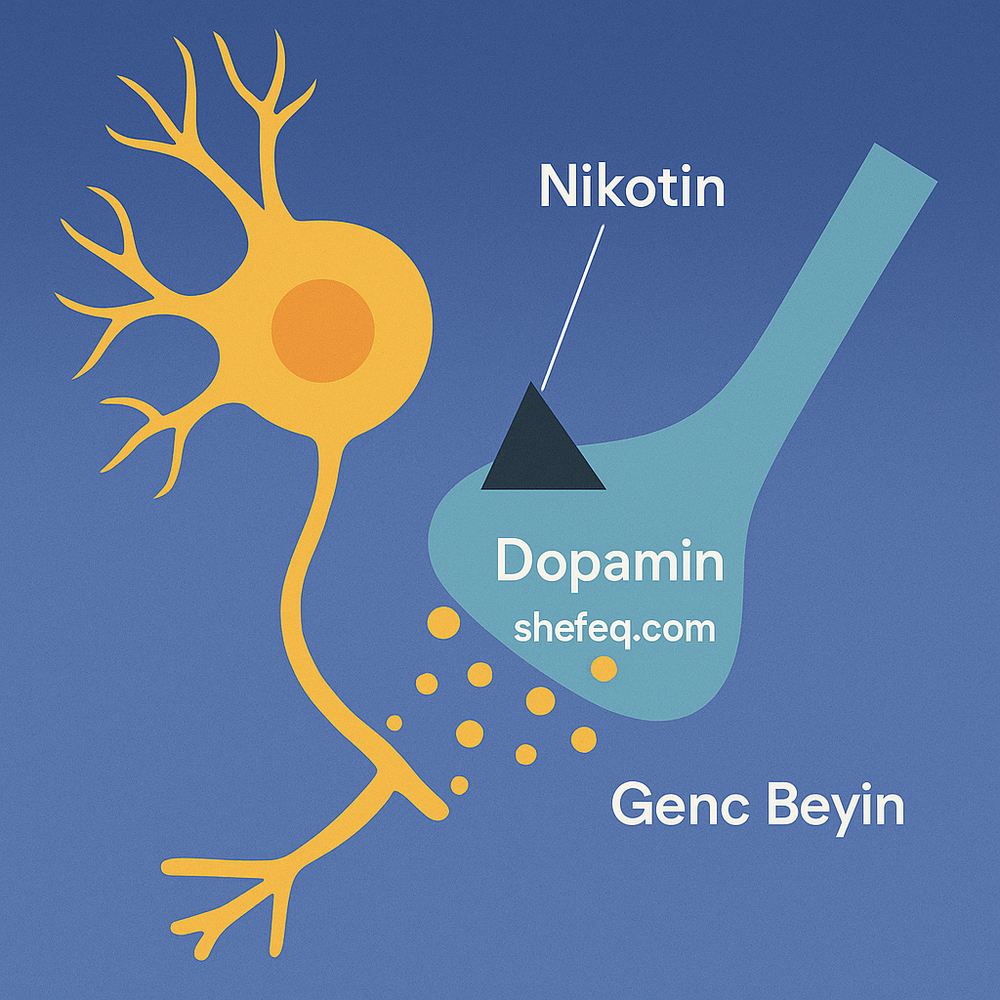Nicotine (shown in the illustration as a black triangle pointing left from the center) “trains” nerve cells (neurons) to release more dopamine (yellow dots). These molecules enter the space between one nerve cell and another — the synapse. When received by neighboring cells, they create pleasant sensations in a person. However, this process also increases the risk of addiction and other health problems.
Nicotine is the main addictive substance found in tobacco smoke and electronic cigarette (vape) vapors. Experts state that the adolescent brain is particularly sensitive to nicotine’s effects, and this sensitivity is related to brain development that continues until approximately the age of 25. When nicotine is consumed via cigarettes, hookah, or electronic cigarettes, it can reach the brain in as little as seven seconds.
The part of the brain responsible for managing emotions and controlling impulses is called the prefrontal cortex. Research shows that nicotine has a particularly strong effect on this region. Nicotine activates special receptor molecules located on the surface of brain cells, including those in the prefrontal cortex. As a result, the cells release signaling chemicals such as dopamine. Dopamine crosses the synaptic gap to reach the neighboring neuron and transmits a “message.” This gives the user a temporary sense of emotional pleasure.
However, repeated exposure to nicotine can cause structural changes in brain cells. These changes may weaken the body’s ability to produce its own natural “feel-good” chemicals (such as dopamine). In addition, in the young brain, the number of receptors may increase as it adapts to nicotine. Consequently, more nicotine is needed to achieve the same “effect,” further increasing the risk of addiction.
In adolescents, nicotine use can lead to attention deficits, difficulties in concentration, and increased feelings of depression and anxiety. Some effects decrease over time once nicotine use stops, but others may be long-lasting.
Research conducted by scientists at VU University Amsterdam found that adolescent rats exposed to nicotine exhibited increased impulsive behavior. These animals made more hasty decisions and had difficulty focusing their attention — even in adulthood. While it is not yet certain whether the same effect occurs in humans, scientists note that this is a cause for serious concern.
Garry Sigman, head of adolescent substance use research at Loyola University Chicago’s Stritch School of Medicine, states: “Exposure of the developing adolescent brain to nicotine can lead to a lifetime risk of addiction.”

